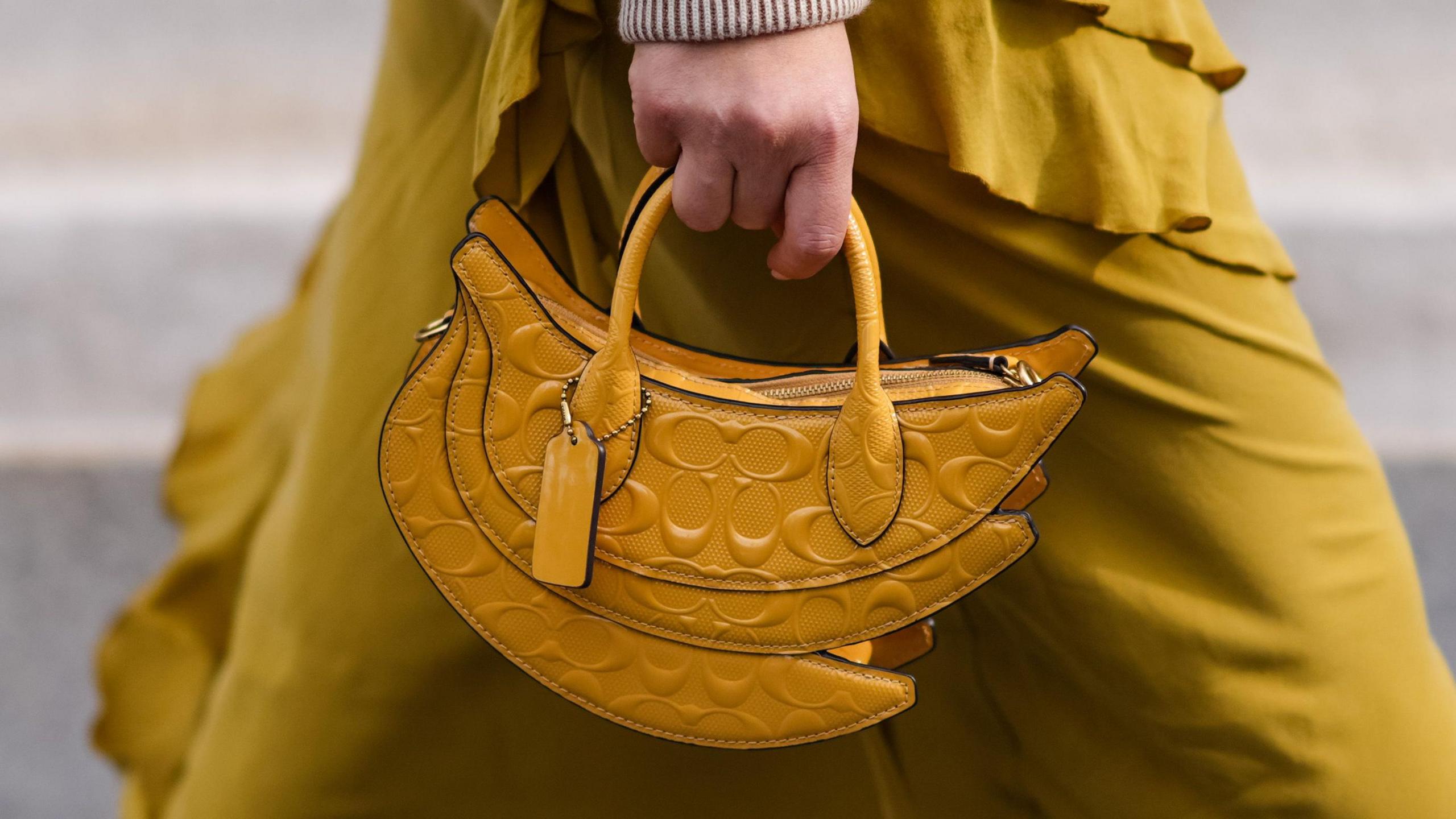US watchdog sues to block $8.5bn handbag takeover

Tapestry owns handbag brands including Coach and Kate Spade
- Published
The US competition watchdog has sued to block fashion accessory giant Tapestry's $8.5bn (拢6.9bn) takeover of rival Capri.
Tapestry owns handbag makers including Coach and Kate Spade, while Capri's brands include Michael Kors.
The US Federal Trade Commission (FTC) said if allowed, "the deal would eliminate direct head-to-head competition between Tapestry鈥檚 and Capri鈥檚 brands".
In response Tapestry said "the FTC fundamentally misunderstands both the marketplace and the way in which consumers shop".
Together, the firms employ about 33,000 staff globally but the FTC argued the deal could reduce wages and their benefits.
Coach and Kate Spade are known for what their parent firm calls "accessible luxury" handbags - quality leather and craftsmanship products at affordable prices.
Tapestry offered to buy Capri in August, hoping to create a US fashion giant that could compete against bigger European rivals such as Chanel, Hermes and Louis Vuitton parent LVMH.
The FTC requested more information on the deal in November.
, the FTC said the deal would give Tapestry a dominant share of the market.
Tapestry said that "in bringing this case, the FTC has chosen to ignore the reality of today鈥檚 dynamic and expanding $200 billion global luxury industry".
Capri, which also owns Versace and Jimmy Choo, "this transaction will not limit, reduce, or constrain competition" as the two firms "operate in the fiercely competitive and highly fragmented global luxury industry".
It is unusual for the US regulator to try to block a high-end fashion merger.
But in December, authorities issued to encourage fair, open and competitive markets.
By using a new tactic under the guidelines, the FTC has argued that the merger of Tapestry and Capri would directly affect hourly workers who may lose out on higher wages due to reduced competition for employees.
Earlier this month, the companies received regulatory clearance for the deal from the European Union and Japan.
The two companies need to close the deal by 10 August.